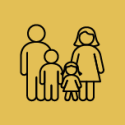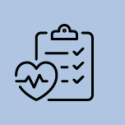The NOCE Dose Podcast: Breaking the Stigma, Elevating Recovery, and Inspiring Hope
The opioid crisis remains one of the most pressing public health challenges in the United States, affecting individuals, families, and entire communities. More than 130 people die every day from opioid-related overdoses, and in 2020 alone, approximately 2.7 million Americans aged 12 or older had an Opioid Use Disorder (OUD) (Substance Abuse and Mental Health Services Administration, 2022). The COVID-19 pandemic exacerbated these challenges, disrupting treatment access, limiting in-person recovery services, and increasing overdose rates. To combat this crisis, stigma reduction and increasing awareness of evidence-based interventions are crucial.
Enter The NOCE Dose Podcast, a podcast designed to illuminate stories of hope, resilience, and recovery, providing vital insights for individuals, families, and professionals navigating the complexities of opioid use disorder. This powerful audio series, produced by the Nevada Opioid Center of Excellence (NOCE), not only amplifies voices from the recovery community but also serves as a learning tool for those responding to the crisis, including practitioners, providers, and policymakers.
Why Should We Care About the Opioid Crisis?
The statistics are staggering:
- More than 130 opioid-related deaths occur daily in the United States (CDC, 2022).
- OUD is highly stigmatized, often discouraging individuals from seeking treatment (Kissell et al., 2022).
- The COVID-19 pandemic exacerbated treatment access challenges, leaving many without vital care.
Stigma, a multidimensional social determinant of health, significantly contributes to the worsening opioid crisis. Individuals with OUD often experience judgment from healthcare providers, difficulty securing employment and housing, and limited access to treatment. The societal consequences of stigma further fuel health disparities, increased mortality rates, and systemic inequities. Research underscores the urgent need for stigma mitigation training and interventions, particularly for healthcare professionals, to promote compassionate and effective care (Kissell et al., 2022).
The Role of Podcasts in Addressing Stigma
Podcasts have emerged as a powerful educational tool for discussing sensitive and complex topics such as stigma and recovery. Research indicates that audio-based learning allows individuals to process difficult subjects at their own pace, making it an effective approach for increasing awareness and changing perceptions (Kissell et al., 2022). The NOCE Dose Podcast provides an engaging and accessible way for listeners to learn about OUD, recovery journeys, and strategies from those with lived experience.

The NOCE Dose Podcast: What to Expect
Each episode of The NOCE Dose Podcast offers candid discussions featuring individuals in recovery, their families, healthcare providers, policymakers, and community advocates. Listeners will hear firsthand how stigma impacts recovery, how policies shape treatment access, and how strategies save lives.
Key themes include:

Personal Recovery Journeys – Real stories of individuals who have overcome addiction and reclaimed their lives.

Family and Community Support – The role of families, friends, and communities in fostering successful recovery.

Harm Reduction and Treatment Access – Exploring evidence-based interventions such as Medications for Opioid Use Disorder (MOUD) and naloxone distribution.

Breaking Stigma – How language, media representation, and public perceptions impact those struggling with OUD.

Policy and Systemic Change – Advocacy for improved treatment access, equity in healthcare, and recovery-friendly workplaces.
Breaking Barriers: The Power of Storytelling
Storytelling is a proven method for reducing stigma and humanizing complex social issues. Research demonstrates that hearing personal accounts of recovery fosters empathy, shifts attitudes, and promotes a more compassionate understanding of OUD (Kissell et al., 2022).
Listeners will not only learn about the science of addiction and recovery but also witness the resilience of those impacted by opioid use disorder. By normalizing conversations about OUD, The NOCE Dose Podcast is dismantling barriers that prevent individuals from seeking help and accessing life-saving resources.
Why You Should Tune In
If you are a healthcare provider, mental health professional, first responder, educator, community advocate, family member, or someone in recovery, this podcast is for you. By engaging with The NOCE Dose Podcast, you will:

Gain a deeper understanding of OUD and the challenges individuals face.

Learn how to combat stigma in your personal and professional circles.

Discover practical strategies for supporting individuals in recovery.

Connect with a community dedicated to hope, healing, and change.
Take Action: Listen, Learn, and Share
The opioid epidemic is not just a crisis; it is a call to action. Educating ourselves, breaking stigma, and fostering supportive communities are essential to turning the tide. The NOCE Dose Podcast is more than just a conversation; it is a movement toward healing, understanding, and recovery.
1. Listen now on Spotify, Apple Podcasts, or your favorite streaming platform.
2. Share this podcast with friends, family, and colleagues to amplify the message of hope and recovery.
3. Join the conversation by following NOCE on social media and engaging with our community discussions.
Together, we can create a future where recovery is celebrated, stigma is eradicated, and every individual has access to the care and support they deserve.
Explore More from the CASAT Podcast Network
The NOCE Dose Podcast is just one of several behavioral health-focused podcasts produced by CASAT. The CASAT Podcast Network offers a variety of podcasts covering topics such as mental health, substance use, and recovery. Other podcasts in the network include CASAT Conversations, Lions Tigers & Bears MI, Pack Chats, Pack N Recovery, and Rose Colored Glasses. Each series provides unique perspectives from professionals, individuals with lived experience, and advocates working to improve behavioral health outcomes. If you’re interested in learning more, exploring different viewpoints, or finding additional resources, check out the full lineup of CASAT podcasts.
References
Centers for Disease Control and Prevention. (2022). Emergency Preparedness and Response. Increase in Fatal Drug Overdoses across the United States Driven by Synthetic Opioids before and during the COVID-19 Pandemic. https://emergency.cdc.gov/han/2020/han00438.asp
Kissell, L. M., Coley, K. C., Khieu, A. S., Bunk, E. J., Herbert, S. M. C., & Carroll, J. C. (2022). Podcasts as a method to deliver education on stigma surrounding opioid use disorder. Pharmacy, 10(6), 161. https://doi.org/10.3390/pharmacy10060161
Substance Abuse and Mental Health Services Administration. (2022). Key Substance Use and Mental Health Indicators in the United States: Results from the 2020 National Survey on Drug Use and Health. U.S. Department of Health and Human Services. https://www.samhsa.gov/data/
Blog Post Tags:
Bianca D. McCall

Bianca D. McCall, LMFT is a retired professional women’s basketball player. She is an international TED Speaker, and renowned mental health researcher and expert. Bianca is a licensed clinical therapist, with 25 years in Behavioral Health, and 12 years as a Healthcare CEO. In recent years, she has grown significantly in the digital health space, and created a first-of-its-kind social-emotional platform, designed to improve human health span.
For more than a decade, her work and research has been dedicated to psychological (mental) injury prevention and the discovery of innovations addressing existential isolation. Bianca is passionate about leading projects which promote ongoing research in mental injury prevention, integration of technologies, data analytics, and the discovery of culturally and linguistically responsive crisis interventions. Bianca represents Nevada, on national committees and namely the Suicide Prevention Resource Center; designated by SAMHSA, and Steering Committee for the U.S. Department of Public Health and is a contributor to the National Strategies for Suicide Prevention in areas of Clinical Education, Provider Standards, and Technology. Bianca is a subject matter expert, a curriculum developer, and instructor in higher education with the Centers for the Application of Substance Abuse Technologies (CASAT), Region 9, housed at the University of Nevada, Reno.








